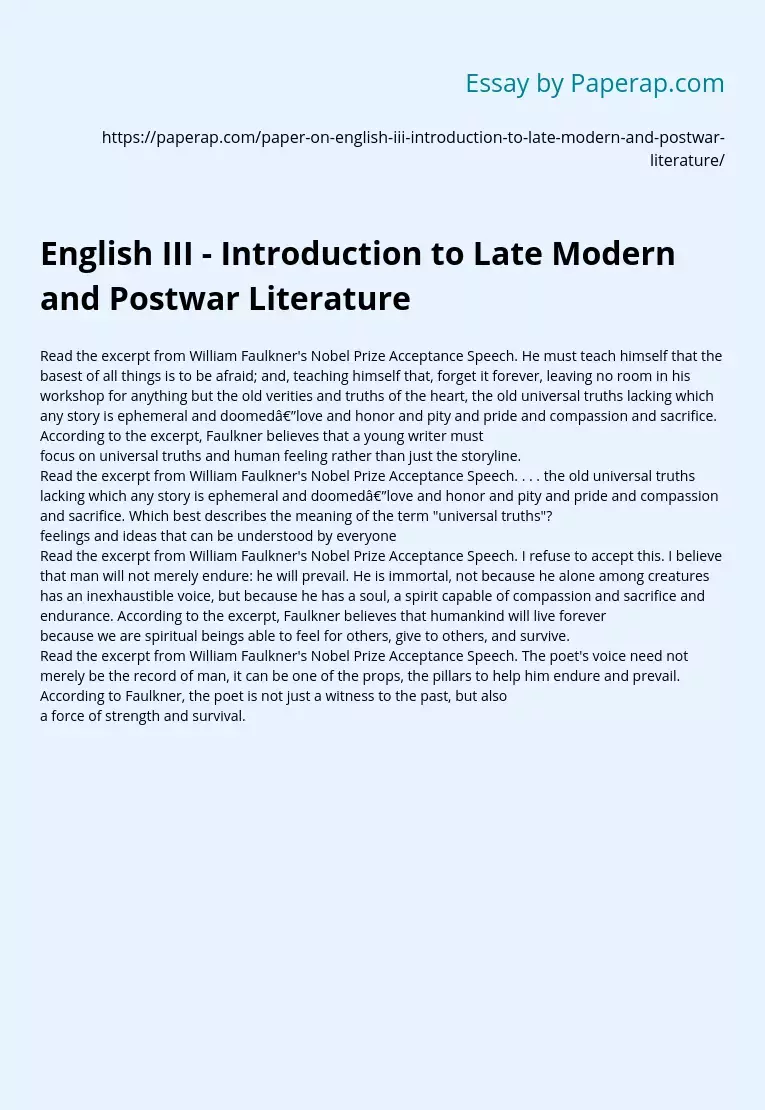English III - Introduction to Late Modern and Postwar Literature
He must teach himself that the basest of all things is to be afraid; and, teaching himself that, forget it forever, leaving no room in his workshop for anything but the old verities and truths of the heart, the old universal truths lacking which any story is ephemeral and doomed—love and honor and pity and pride and compassion and sacrifice.
According to the excerpt, Faulkner believes that a young writer must
. . . the old universal truths lacking which any story is ephemeral and doomed—love and honor and pity and pride and compassion and sacrifice.
Which best describes the meaning of the term “universal truths”?
I refuse to accept this.
I believe that man will not merely endure: he will prevail. He is immortal, not because he alone among creatures has an inexhaustible voice, but because he has a soul, a spirit capable of compassion and sacrifice and endurance.
According to the excerpt, Faulkner believes that humankind will live forever
The poet’s voice need not merely be the record of man, it can be one of the props, the pillars to help him endure and prevail.
According to Faulkner, the poet is not just a witness to the past, but also
His griefs grieve on no universal bones, leaving no scars. He writes not of the heart but of the glands.
According to Faulkner, the new literature
English III - Introduction to Late Modern and Postwar Literature. (2018, Jan 26). Retrieved from https://paperap.com/paper-on-english-iii-introduction-to-late-modern-and-postwar-literature/

